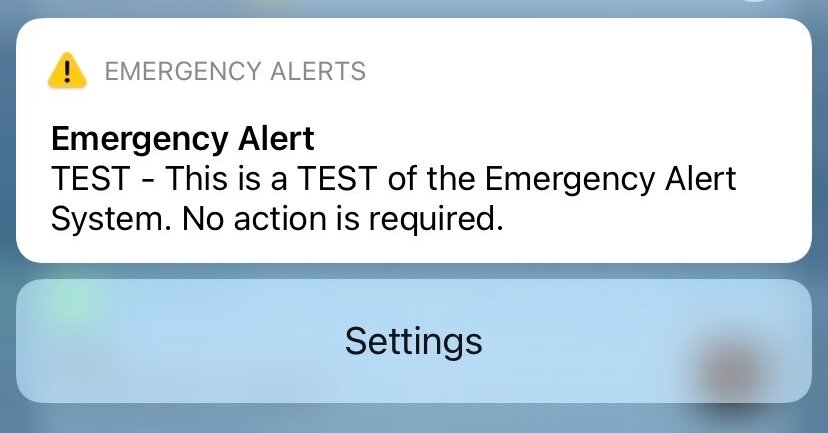Many Florida residents woke up around 4:45 a.m. on Thursday to a blaring alarm after an early morning emergency alert system test blared from their cell phones.
The Florida Division of Emergency Management, which coordinates and manages warning systems for emergencies such as hurricanes and other disasters, apologized for the reports in a statement.
“The division understands that unexpected 4:45 a.m. wake-up calls are frustrating and would like to apologize for the early morning texts,” Alecia Collins, a spokeswoman for the agency, said in an email.
“Each month we test emergency alerts on different platforms, including radio, television and SMS alerts,” she said. “This particular warning was meant to be on TV and not disturb anyone who is already asleep.”
The warnings jolted some Floridians out of bed on Thursday, and in homes with multiple cell phones, the sounds caused an early morning cacophony.
On social media, Floridians complained about the warning and shared screenshots of their phone screens with the message, which said, “This is a TEST of the Emergency Alert System. No action needed.”
Officials in St. Lucie County in southeastern Florida said on Twitter that the alert was sent to “every wireless subscriber” in the state. According to the Federal Communications Commission, there were more than 22.8 million wireless subscribers in Florida in 2021.
The Thursday morning test was for television alerts, which are usually broadcast early in the morning when the fewest number of people are watching to minimize disruption, Ms Collins said.
She said the emergency management agency “took appropriate action to remove the company responsible for filing the alert this morning.”
Ms Collins said a software company contracted by the state, Everbridge, sent the wrong technical specifications for the alert. Everbridge did not immediately respond to a request for comment on Thursday.
Governor Ron DeSantis said on Twitter that he had directed the agency “to account swiftly for the test of the emergency warning system in the wee hours of the morning.”
“This was a completely inappropriate use of this system,” he added.
The blaring alarms prompted some on social media to explain how they could stop receiving these notifications, but Florida’s emergency management department urged people not to turn them off, as such alerts are important to public safety .
The National Weather Service office in Tampa Bay also acknowledged that the warnings were “inconvenient,” but said on Twitter that it “strongly discouraged” people from turning off the warnings because it could cause them to miss weather warnings “that could mean the difference between life and death.”
For more than a decade, the United States has been sending emergency alerts to mobile phones, while countries like Britain are only just adopting the technology.
The first nationwide test of Britain’s new system is scheduled for Sunday and an extensive national campaign has been launched to ensure people are prepared for the test and future warnings, which could be sent for severe weather, including flooding and to burn.
The Florida mistake wasn’t the first time a cell phone emergency alert test went wrong.
In January 2018, people in Hawaii received a false alert for an incoming ballistic missile and it took about 38 minutes for the state to send an alert that the first one was in error. The false alarm was sent by a worker with a long history of poor performance who believed the state faced a real threat, FCC and Hawaii officials said.

